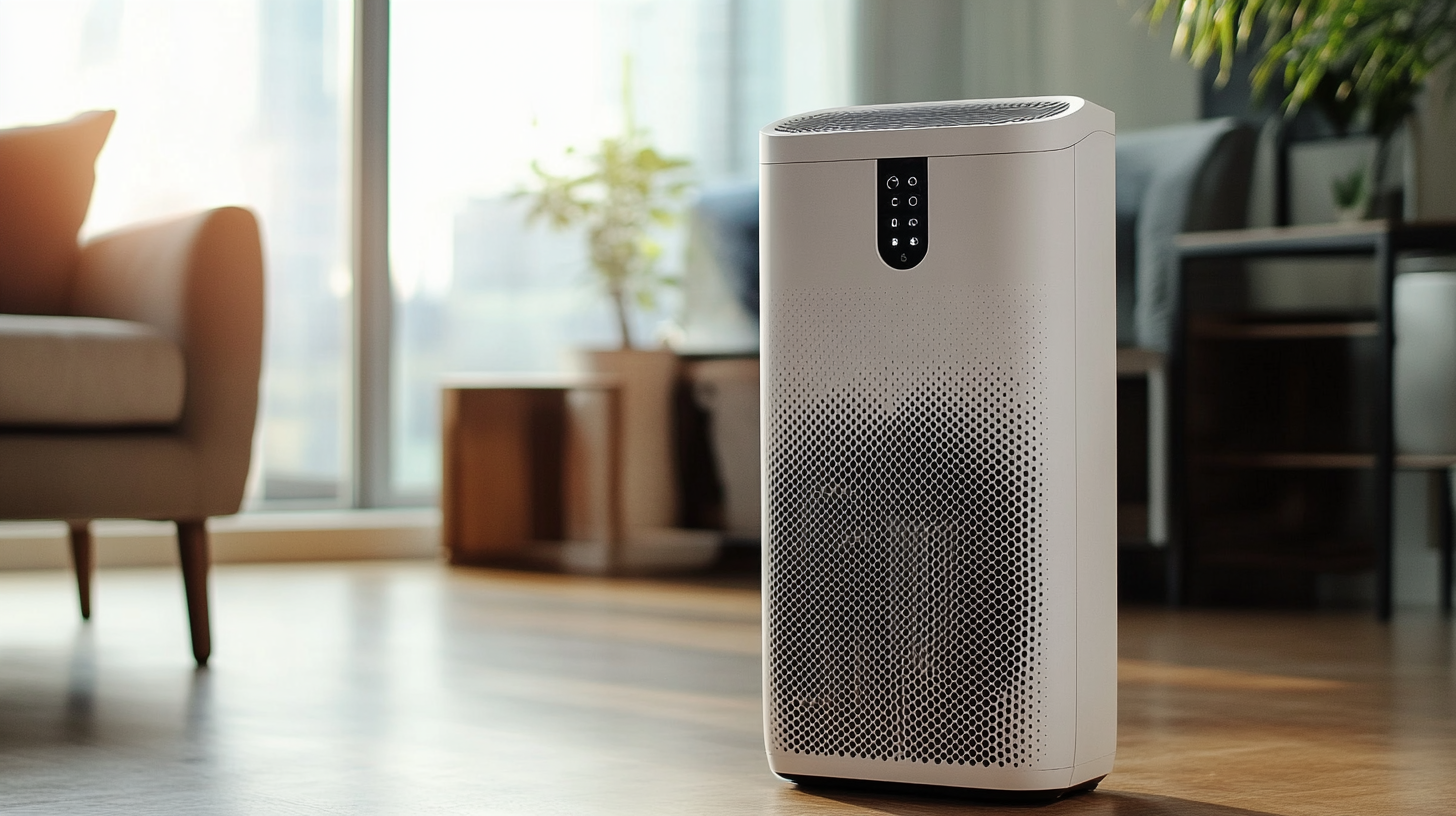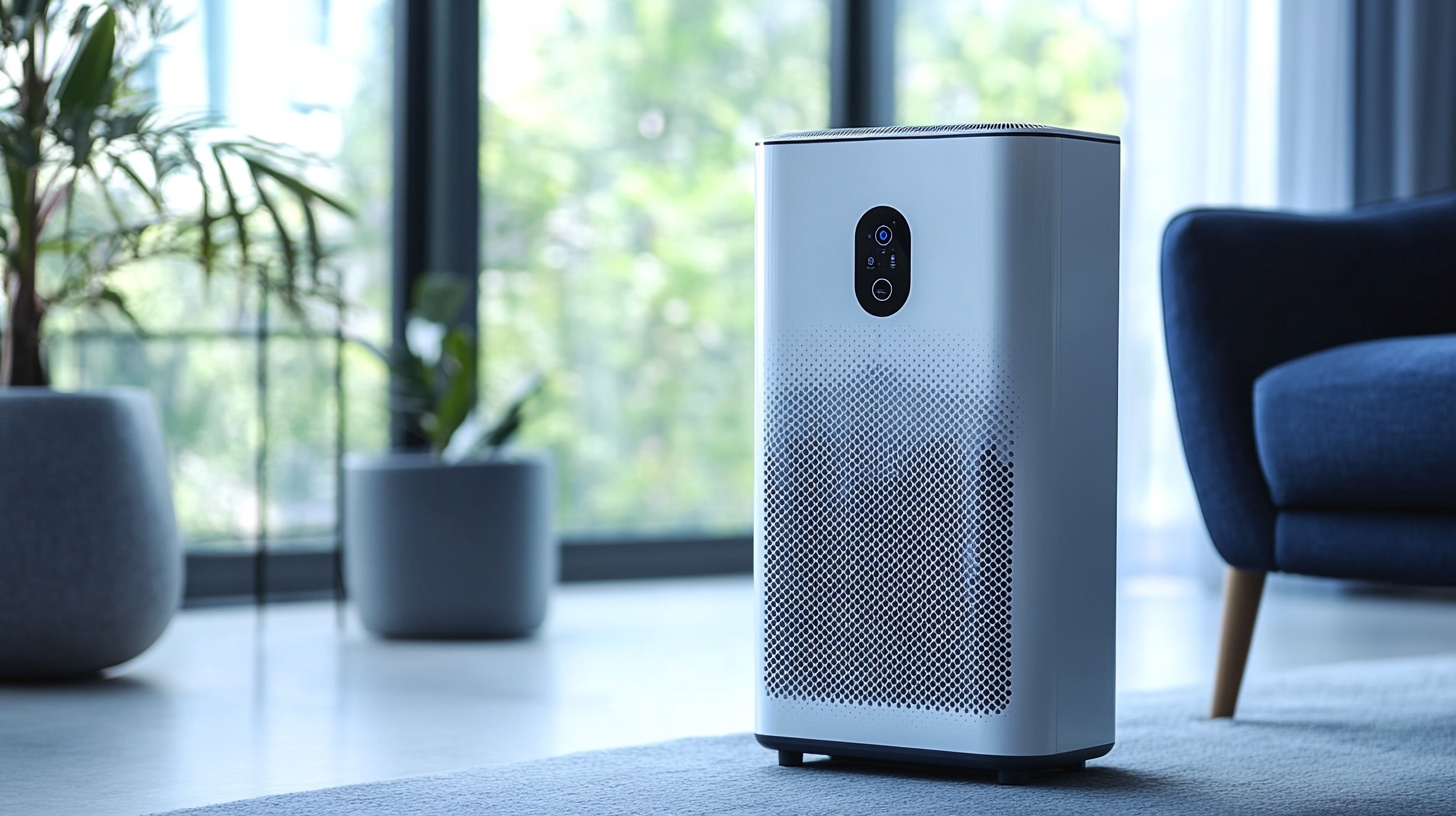
Top 10 Air Purifier Manufacturers from China at the 137th Canton Fair
The 137th Canton Fair has notably marked a milestone in the global trade of air purification solutions, attracting a record number of international buyers. According to industry reports, the global air purifier market is projected to grow from $11.24 billion in 2020 to $19.36 billion by 2026, reflecting a significant shift in consumer demand for cleaner air.
 With this increasing awareness regarding air quality, top manufacturers from China showcased their innovations in cleaning air technology at the fair. The event, which concluded successfully, registered nearly 289,000 overseas purchasers, an impressive 17.3% increase from the previous session. As the demand for efficient air purifiers rises, the upcoming 138th Canton Fair, scheduled from October 15 to November 4, promises further opportunities for companies aiming to expand their footprint in the burgeoning cleaning air sector.
With this increasing awareness regarding air quality, top manufacturers from China showcased their innovations in cleaning air technology at the fair. The event, which concluded successfully, registered nearly 289,000 overseas purchasers, an impressive 17.3% increase from the previous session. As the demand for efficient air purifiers rises, the upcoming 138th Canton Fair, scheduled from October 15 to November 4, promises further opportunities for companies aiming to expand their footprint in the burgeoning cleaning air sector.
Top Trends in Air Purifier Technology Showcased at the 137th Canton Fair
At the 137th Canton Fair, air purifier technology showcased groundbreaking advancements that are set to elevate indoor air quality globally. Recent industry reports highlight a significant surge in air purifier demand, with the global market projected to reach USD 33 billion by 2025, reflecting a compound annual growth rate (CAGR) of 10.4% from 2020. This growth is largely driven by heightened consumer awareness regarding air pollution’s impact on health, as well as a growing prevalence of respiratory conditions.
One notable trend at this year's fair was the integration of smart technology into air purifiers. Many manufacturers introduced models equipped with IoT capabilities, allowing users to monitor air quality in real-time via mobile applications. Reports from environmental analysts indicate that smart air purifiers could dominate the market, expected to account for over 30% of total sales by 2024. Another highlight was the advancement in filtration technologies, particularly HEPA and activated carbon filters, which now offer improved efficiency in capturing airborne pollutants, making them essential in the fight against indoor air pollution.
Top 10 Air Purifier Manufacturers from China at the 137th Canton Fair
| Rank | Company Type | Annual Production Capacity | Key Technology Features | Market Focus |
|---|---|---|---|---|
| 1 | Commercial | 500,000 units/year | HEPA, Activated Carbon, UV-C Light | B2B & Corporate |
| 2 | Residential | 300,000 units/year | Smart Features, Wi-Fi Connectivity | Home Users |
| 3 | Portable | 150,000 units/year | Battery Powered, Compact Design | Travel & Small Spaces |
| 4 | Industrial | 200,000 units/year | High-Efficiency Filters, Large Volume | Factories |
| 5 | Healthcare | 100,000 units/year | HEPA, Ionizer, Sterilization | Hospitals & Clinics |
| 6 | Commercial & Residential | 400,000 units/year | Active Carbon, Photocatalytic Filter | Restaurants & Homes |
| 7 | Smart Home | 250,000 units/year | AI Integration, Voice Control | Tech-Savvy Consumers |
| 8 | Eco-Friendly | 180,000 units/year | Renewable Filters, Energy Efficient | Environmentally Conscious Users |
| 9 | Custom Solutions | 120,000 units/year | Tailored Filtration Systems | Specialized Industries |
| 10 | Luxury Brands | 50,000 units/year | Premium Materials, Design Aesthetics | High-End Consumers |
A Guide to the Leading Air Purifier Manufacturers from China
As concerns about air quality continue to rise, the air purifier industry in China is experiencing rapid growth. The 137th Canton Fair serves as a significant platform for highlighting leading air purifier manufacturers. With increasing urban pollution and health issues related to poor air quality, many companies are innovating to meet the growing demand for effective air purification solutions.
The presence of top manufacturers at the Canton Fair offers potential buyers access to a broad spectrum of products that cater to various needs, from residential to industrial applications. Given the recent trends revealing alarming levels of air pollution in major cities, the role of these manufacturers becomes crucial. They not only provide essential health protection through advanced filtration technologies but also contribute to a healthier indoor environment, which is increasingly recognized as vital for overall wellness.
Moreover, the air purifier market is not limited to traditional models; emerging technologies are enhancing the functionality and efficiency of these devices. Many manufacturers are exploring advanced features such as smart connectivity and real-time air quality monitoring, making air purifiers indispensable in modern living and workspaces. The Canton Fair remains an essential opportunity for industry stakeholders to connect and innovate, driving the future of air purification in China and beyond.
Air Purifier Manufacturers Market Share
This bar chart illustrates the estimated market share of leading air purifier manufacturers from China showcased at the 137th Canton Fair. The data reflects the competitive landscape within the air purifier industry based on various key performance metrics.
Key Innovations in Air Purification Featured at Guangzhou's Major Trade Event
At the recent 137th Canton Fair in Guangzhou, air purifier manufacturers showcased key innovations aimed at enhancing indoor air quality. With increased awareness of air pollution and its health effects, manufacturers are responding with advanced technologies that offer powerful filtration and smart functionalities. Notable advancements include HEPA filters combined with activated carbon, providing effective removal of allergens, toxins, and odors, ensuring cleaner air for homes and workplaces.

When selecting an air purifier, consider the size of the space you want to purify. Look for models specifically designed for your room size to ensure optimal performance. Additionally, pay attention to the Clean Air Delivery Rate (CADR) which indicates the effectiveness of the purifier in filtering dust, smoke, and pollen. High CADR ratings generally mean the unit can quickly improve the air quality in your space.
Another trend highlighted at the fair is the integration of IoT technology in air purifiers. Many models now offer smartphone connectivity, enabling users to monitor air quality and control settings remotely. This innovation not only adds convenience but also helps users stay informed about their indoor environment. Remember to change filters regularly to maintain efficiency, as clogged filters can reduce the effectiveness of any air purification system.
Insights from International Buyers on Air Purifier Demand and Preferences
The 137th Canton Fair served as a significant platform for international buyers seeking the latest innovations in air purification technology. Insights gathered from attendees highlight a growing demand for efficient and eco-friendly air purifiers, driven by increasing concerns over air quality and health. Buyers expressed a clear preference for systems that combine advanced filtration technologies, such as HEPA filters, with smart features like air quality monitoring and mobile app integration. This shift indicates that consumers are looking for products that not only provide clean air but also offer convenience and real-time data.

Moreover, international buyers shared insights on design preferences, gravitating towards sleek, modern aesthetics that can seamlessly blend into various home and office environments. Buyers emphasized the importance of noise levels, favoring quieter models that enhance user comfort without compromising performance. As manufacturers strive to meet these evolving preferences, it is evident that the air purifier market in China is becoming increasingly competitive, with a focus on innovation and consumer-driven features. As we move forward, the collaboration between manufacturers and buyers will be crucial in shaping the future of air purification solutions.
Future Prospects for China's Air Purifier Market Post-Canton Fair
The recent 137th Canton Fair has set the stage for an exciting future for China's air purifier market. As concerns over air quality continue to rise globally, the demand for effective air purification solutions is also increasing. Manufacturers showcased innovative designs and advanced technologies, focusing on not just functionality but also user experience. These developments are likely to drive competitive pricing and diversification of product offerings, making air purifiers more accessible to a broader audience.
Looking ahead, the Chinese air purifier market is anticipated to expand significantly as environmental awareness grows. With stricter regulations on air quality and an increase in pollution levels, consumers are more eager to invest in efficient air purifiers. Moreover, manufacturers are exploring smart technology integration, such as IoT capabilities that allow users to monitor air quality via mobile applications. This trend indicates a shift toward more personalized and interactive consumer experiences, hinting at a robust market growth trajectory in the years to come.
